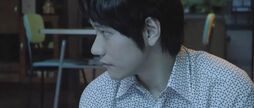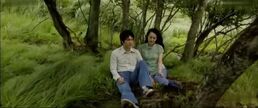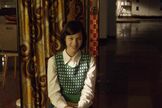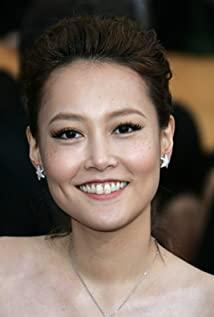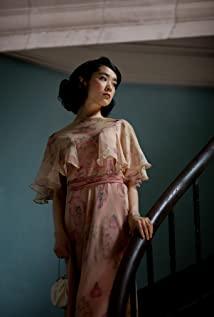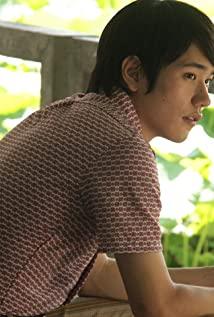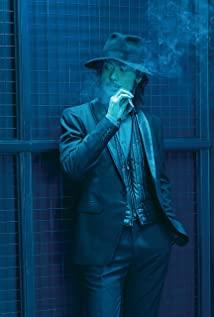read the novel in August and September of 2009, more than a year and a half from now. When we played together in the summer vacation, a friend who studied philosophy kept muttering in front of me how good "Norwegian Wood" was and how he liked it. Later, I met at a book stand, and he said, "It's so cheap, I'll buy a copy for you... So I finally read the novel."
A year and a half is not too long. But for me, many things have changed. Many plots in the novel have become ambiguous, and there is no need to reread them. I just remember the cunning and humorous words written by Murakami, and the faint and gloomy sadness that flows from time to time. Don't think that we have not reached the point of "standing, not confused, and knowing the destiny", but the changes of the times have a great impact on personal life. I had insomnia the night before and couldn't sleep until five in the morning. It's like turning over a lifetime of things a thousand times until it's cooked and fried. I watched the movie last night. I was drowsy due to lack of sleep, but I still saw more than one o'clock, and continued to lose sleep until after two o'clock.
Mostly I watched it out of curiosity, knowing I would be disappointed in the movie. as expected. Some people say that it is not advisable to watch this kind of movie at night, because it has an impact on sleep. Can't handle this much.
2
The scene at the beginning is the story of two teenagers playing fighting games there, Watanabe and Kiyuki and Naoko. That feeling can only be described in two words: barren, shabby. This clearly reveals to you that the artistic function of the film is inferior to that of the literature: the direct involvement of the characters' emotions in the text, the harmony and transparency, but it is very difficult for the film.
Movies think they have the advantage of being a realistic representation of reality. But the real situation has to undergo a great test when it evolves into a movie. First of all, the reality is mostly ugly, and it is inevitable that it will become a falsification when entering a movie; secondly, the actor's shape and appearance must be tested by the audience and itself, both of which are very harsh. Not harsh.
Neither boy is beautiful enough. Fragments of friendship flashed by. So there is a feeling that Murakami's novels were cut into pieces by a pair of scissors. Then Watanabe went to Tokyo to study, and the university life formed a dynamic contrast of "people carnival but I am free". We felt that the approach was a bit too paediatric.
3 Judging people
by their appearance must address this issue. The appearance of an actor is related to the aesthetic effect and the mood of watching a movie, and it is an intuitive and cosmetic thing. In general, my dissatisfaction with the actor's appearance is the most important thing. Of course this is just my personal feeling.
Muyue will not say it. Muyue was supposed to be a handsome, slightly mature, and melancholy boy, but the film bossily asked him to contrast with the protagonist Watanabe, so he became the most shabby-looking one in the whole film. It was as if a poor student who was transferred from other places put on the same school uniform as everyone, and his status was unified, but he could not hide the fate of poverty and grief, a hint that he would die early... Since he would die early, the director scribbled it. One took.
I was surprised that Naoko's looks and temperament had an overly revealing joy. The round face, the double eyelids, and the helplessness and guilt in his eyes are always accumulated in his eyes. I think she looks like a certain actor, but I can't remember who it is. I also think she is somewhat similar to a post-80s female writer, and I'm not sure. All in all, it wasn't in my imagination. In my impression, Naoko is the embodiment of melancholy and indifference. To put it a bit harsher, it makes people think of Ghost and A Chinese Woman barely living under the sun. She should have flat cheeks, a thin and thin body, a frosty complexion, slender and smooth fingers, long black and straight hair (which is very fitting), slow pace, regular, slightly dull language Expressing... But Naoko in the movie makes me feel that she grew up from laughter, with a round, bulging face, exposed lips and teeth, in a hurry, and with intense emotions. It's true that Naoko suffers from depression and schizophrenia. It was only in the wild Ameliao (a name not mentioned in the movie, like Fitzgerald, The Great Gatsby, etc.) that Naoko showed her wild and gloomy side ...the scene of Naoko's death, the scene is a gloomy and depressing winter in the barren mountains, accompanied by a depressed heavy bass, and then showing two dangling legs, I was scared to death - this is the most horror movie in my opinion. a scene. The director is still very ruthless.
Watanabe is the highlight, the male lead. About the beginning, I didn't show up completely, I didn't see clearly, the poor appearance of a little broken child. When I arrived in Tokyo and met Naoko, I found out that this Watanabe turned out to be a copy of the Chinese idol star Porridge in neighboring Japan... The hairstyle, face, eyes, temperament and many other places have about 50% overlap. The difference may be in the mouth and nose, and the similarity will be as high as 25%. Watanabe-kun has a strong boyishness, pure and slightly shy. So his upper lip tipped outward and his lower lip retracted. The upper lip represents innocence, and the lower lip represents restraint. A faint mole on the right half of the nose, an inconsequential spot. Very interesting is Watanabe's tone and eyes. Unhurried, slow and well-rounded, when talking to girls, he looks naive and ignorant; his language is concise and calm, slightly philosophical, and loud, friends think he is very interesting, and girls think he is very good at coaxing people ;Watanabe imitated Jay Chou's style, he didn't speak much, he was mainly deep, "maybe" when he needed affirmation, "is it" when he needed to question, "huh?" when he was in doubt, "um" when he didn't want to speak... ...From this point of view, Watanabe-kun's performance is basically qualified, and he can score 80 points. What is very different is the appearance of the ghost crying and wolf howling at the seaside at the end. It is a grief-stricken cry of grief. Although it can be imagined from the novel, the performance is still very interesting. It's funny, and it makes people feel sad.
Midori is also very important, and the actor deviates 40 degrees from what I expected. Midori's appearance was very funny. She was dressed in a fashionable girl's red dress with a long black bag on her shoulders. She walked towards Watanabe step by step from behind. I thought it was her classmates performing a drama in the restaurant. And the pair of giant panda black-lens glasses, so big they cover their entire face. Pity her body, head and face are so small and light. The lips are big and thick, and they are not well-behaved. The eyes often shoot oblique light, and he always tilts his head to express his evil imagination... The setting of eyes and lips makes Midori take on the characteristics of a half-breed. I don't remember if there was such a description in the novel. It's a pity that the director deleted the humorous scene of Watanabe feeding cucumbers and listening to the old man's nonsense when he was escorting him in the hospital, and it was even more pity that Watanabe and Midori were cooking, chatting, kissing on the second floor, and then there was a fire nearby. Midori listened to Watanabe's touching story about going to the fire and dying together (even if these "moving" are petty bourgeoisie and flirtatious). In the second half, the film's firepower focuses on Naoko's suffering and death, while Midori is ignored. Originally it seemed like this in the novel, but I think the director further forgot about Midori, not only did he not bring out Midori's crazy and lively personality like a forest deer, but also caused her lack of emotional communication and depth with Watanabe. , which is somewhat unfair to Midori. So in the end I can't feel how much Watanabe loves Midori...
Finally, three secondary characters. Nagasawa, Hatsumi and Reiko. In fact, all three are important. Yongze is a son of a wealthy family, suave, informal, high-minded, ambitious, and highly motivated, but like Liu Xuande Gui'er, he sees "women are like clothes". Although the role is not too heavy, the acting skills can be over 90. Hatsumi, I think I need to score 99 points, she is really an indescribably beautiful girl. The remaining 1% is reserved for the literary imagination. Although Naoko and Midori are supported by two pillars, I don't think anyone will object. Hatsumi is the most beautiful, so beautiful that people forget all the uncleanness and the passage of time. Without Hatsumi and her beauty, the world would not be perfect. In the novel, Watanabe and Hatsumi sat in the rental after drinking and observed Hatsumi's moving, and many years later Watanabe saw the red sky at a coffee shop in Mexico City. Thinking of the amazing beauty of Hatsumi, it is unforgettable. . In the taxi segment, the director made a detailed portrayal, which is commendable. The latter is too difficult, so I don't blame the director. You can find that Watanabe has had a relationship with almost all the women in the story, except Hatsumi. There is a force that forbids you to do this kind of imagining. In the final analysis, Hatsumi is too beautiful, those big eyes like jewels (many images used as a metaphor are deceiving the world), that kind of calmness and temperament with shocking power, make everything around them eclipsed and then withered. As for Reiko, this eldest sister is also very tasty. I think Reiko is the most Japanese of all the actors. Short curly hair, flat forehead, pale complexion, eyes that bend into a pair of crescent moons when he smiles, and a gentle and kind disposition, all in line with the description in the novel. I remember that Reiko had an experience with a student who had a lesbian incident. It was reasonable to delete it from the film. The scene was messy enough. What makes me vaguely hateful is the plot where Reiko finally finds Watanabe, who has returned from Noyou, and asks and finally has sex with Watanabe. From novels to movies, I don't quite understand the psychology of such a woman. Is it because it is so close that it is necessary to enter the other party after being possessed by the soul of a close friend? ...more on this later.
4 Ameliao
As I said at the beginning, the film was very poor at the beginning, but then I slowly found the feeling. On the one hand, the feeling of the novel is coming back, and on the other hand, the beauty of the tone of the film. Originally, the whole film has something to say, but this style and characteristics are most prominent in the barren mountain sanatorium Ameiliao. The film never mentions the name Ameliao, just like leaving out many other elements, probably to reduce the burden of the lines and focus on the plot.
Delicate, gentle, cool, serene, serene. This is the tonal characteristic of the film.
I am a little puzzled. In my opinion, the desolation, strangeness, and coldness in Ameiliao are a "ghost place" that makes people tremble. Its beauty is a kind of pure natural beauty. recovery"? As the seasons change, the scenery of Ameiliao makes people yearn, implying that Naoko's condition is also changing. Intricate dense forest trails, grasslands full of mountains and plains like the hair of a devil, river valleys with clear and icy water, wasteland with isolated trees and raging winds, forests with vast snowfields and dark trees... This is a distant painting. Comparable to the famous handwriting. In the words of a pure friend of mine, Watanabe and Naoko "did bad things" again and again there. The wildness and desolation of the scenery are intertwined with the anxiety, gloom and even death of the characters. I don’t know if it is a kind of poignant beauty or the tension of life’s desire.
The film omits the ordinary details of life in the novel, omits the beauty of Naoko naked in front of Watanabe's bed late at night, but repeats countless times the entanglement, predicament and torture before and after the two have sex. The erotic, oppressive, "wet" atmosphere soared inexorably. Compared with the novel, Naoko and Watanabe are not calm enough at this time, not calm enough, and lack the beauty of thinking and feeling. Naoko lost control on the windy prairie, screaming piercingly, the devil-like long grass swaying like crazy, making people feel cold and terrifying to live. The camera moves from the black and white lines of the snow-colored mountains to the thick tree trunks as dark as a tunnel, and then to the gray mid-air, and finally two legs are suspended in the air, which makes people feel terrifying to die.
5 themes
Briefly say this. Naoko once said, "If I say, one should cycle between 18 and 19... 18 is 19, and then 19 is 18 again. If possible, it would be easy... "There is probably something like this in the novel, but I'm not impressed. But after hearing this, I found the feeling of novels, and felt that novels have always been thinking about such problems. But the movie just avoids these themes.
I don't know how the film is so slim when it "shrinks the bones" of the novel, the rich emotions of the characters are gone, and a lot of details are not reflected. All plots are entangled in one theme.
In short, the sexual relationships of the various characters are chaotic. No matter where Watanabe is or who he talks to, he can't do without "sleeping" and "doing". Their language communication is always in the "Have you ever lived with him (her)?" "Why haven't you slept?" The words lingered, repeating as if they were melting. What kind of psychology did Reiko and Watanabe have sex with? I'll leave it to you to guess...
Midori, who always thinks evilly and is very impure, called Watanabe with the loss of her father, and asked Watanabe with great sorrow, "Will you take me to see a pornographic film? ?" (Answer: Yes) and then "Look at the yellowest and most yellow one?" (Answer: I try to look for it)... Yellow thoughts will be soaked in tears and swollen, I don't know what's going to happen... ...that's the style of the one and only theme in the film, which makes people laugh and cry. This raises doubts about the director's pure motives. Not what was written in the original novel, but what was shown in the movie.
6 The ending
For the ending, I think the movie fails the most. Before I could see the eyes, the plot was over, and the sloppy performance also greatly reduced the artistic conception that the novel should have.
Allow me to excerpt the last paragraph of the novel. Watanabe, who was lost and returned, felt that he still had to live, so he finally remembered Midori, wanted to see her, and called. Heartbroken Midori asked "Where are you now?" Where
am I now?
I raised my face with the receiver, and quickly looked around the phone booth. Where am I now? I don't know where this place is, and I'm at a complete loss. Where exactly is this place? As far as the eye can see, there are countless men and women who do not know where to go. I was in the middle of the place where I was not anywhere, and I kept calling out to Midori.
The movie turns a blind eye to Watanabe's dazed sense of absence and longing for the reality of the world when he looks around the world and is in a wasteland at the end. After one line, it is cut off abruptly, followed by two very ridiculous speculative words about life and death. It's so crude, and the skill is very lacking in practice.
Let me start with my friend who studies philosophy. In my opinion, he is a very thoughtful, in-depth and action-oriented person. Corresponding to the various characters in the story, he is more like Yongze in character. However, when he was about to graduate, he was not happy. One day, I received a call from his father, saying that this friend was in a low mood at home and was depressed... I felt unhappy for my friend.
View more about Norwegian Wood reviews




